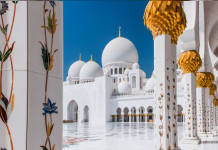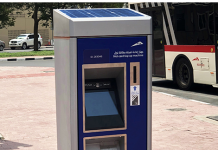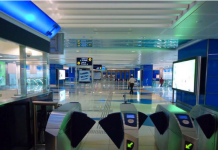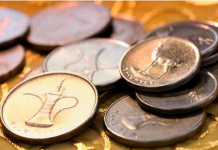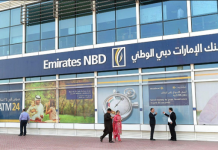
The United Arab Emirates’ dependence on food imports continues to pose a food security challenge, the new minister of state for food security, Mariam Bint Mohammed Saeed Hareb Al Mehairi, said.
“We still face many challenges. Today, we import from 80 to 90 percent of our food,” Al Mehairi said on Thursday, speaking at a press conference announcing the launch of a new report, Advancing Food Security in the UAE. The report was produced by the Mohammed Bin Rashid School of Government.
“Our security, therefore, does not come from our ability to produce food for our current population, it comes from our ability to purchase an import,” said Al Mehairi, who was appointed following a cabinet reshuffle last October.
ADVERTISING
She said that the ministry intends to do more research on the topic, and planned to introduce new technologies and other business incentives to boost the sector’s growth.
“It is a slow process, but it is a process that we will have to work together in, with small steps at a time …Our food consumption, the way we eat, the way we deal with food waste, is a priority,” the minister said, praising a recent decision by Dubai Municipality to introduce a new fee on food waste.
The amount of food waste generated in the UAE is estimated to be worth around $4 billion, according to local media reports. Zawya could not independently verify that figure.
The Advancing Food Security In The UAE report listed a number of points as strengths, weaknesses, opportunities and threats facing the UAE in terms of food security. These include:
Strengths:
Economic and political stability
Strong diplomatic relations
Logistics and transport hub
Weaknesses:
Lack of arable land
Water scarcity
Hot climate
Insufficient investment in agricultural research
High levels of food waste
Opportunities
Huge export market
New agricultural technologies
Public-private partnerships
Threats
Insufficient data for research and planning
Heavy government subsidies for utilities and agriculture
High dependence on global and regional markets
(Source: Advancing Food Security in the UAE, Mohammed Bin Rashid School of Government)
A report issued last year by consultancy firm Alpen Capital predicted that food consumption in the UAE will grow at annual rate of 4.4 percent between 2016-2021. The UAE’s population stood at 9.12 billion at the end of December 2016, according to official statistics published on the Federal Competitiveness and Statistics Authority’s website.
“We want to go to Mars one day and be able to grow our food there. So we need to start here,” Al Mehairi said.
In 2016, the UAE announced plans to build a $136 million city to simulate the conditions of life on Mars. Last December, UAE vice president and ruler of Dubai, Sheikh Mohammed bin Rashid Al Maktoum, announced a government plan to select, train and sponsor four UAE citizens to become astronauts and represent their country in space exploration trips.




